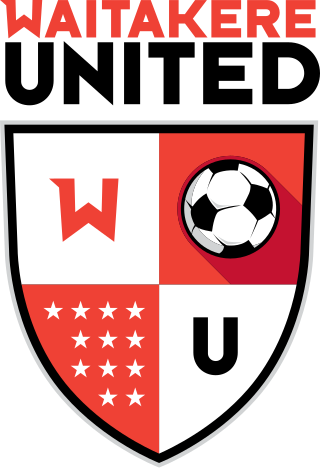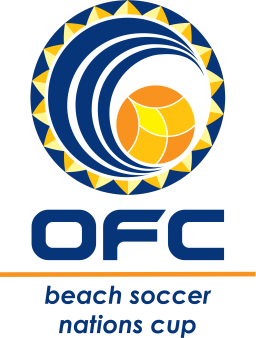Related Research Articles

The OFC Men's Nations Cup, known as the OFC Nations Cup before the 2024 edition, is the primary association football competition contested by the senior men's national teams of the members of the Oceania Football Confederation (OFC), determining the continental champion of Oceania. The winning team became the champion of Oceania and until 2016 qualified for the FIFA Confederations Cup.

The Oceania Football Confederation (OFC) is one of the six continental confederations of international association football. The OFC has 13 members, 11 of which are full members and two which are associate members not affiliated with FIFA. It promotes the game in Oceania and allows the member nations to qualify for the FIFA World Cup.

The New Zealand men's national football team represents New Zealand in men's international football competitions. The team is governed by the governing body for football in New Zealand, New Zealand Football (NZF), which is currently a member of FIFA and the Oceania Football Confederation (OFC). The team's official nickname is the All Whites.

The American Samoa men's national football team represents American Samoa in men's international association football and is controlled by the Football Federation American Samoa, the governing body of the sport in the territory. American Samoa's home ground is the Pago Park Soccer Stadium in Pago Pago.

The Tahiti men's national football team represents French Polynesia and is controlled by the Fédération Tahitienne de Football. The team consists of a selection of players from French Polynesia, not just Tahiti, and has competed in the Oceania Football Confederation (OFC) since 1990.

The Papua New Guinea national soccer team is the men's national soccer team of Papua New Guinea and is controlled by the Papua New Guinea Football Association. Its nickname is the Kapuls, which is Tok Pisin for Cuscus.
The New Caledonia men's national football team is the national team of New Caledonia and is controlled by the Fédération Calédonienne de Football. Although they were only admitted to FIFA in 2004, they have been participating in the OFC Nations Cup since its inception. They have been one of this relatively small region's strongest teams, finishing second in 2008 and 2012, and third in 1973 and 1980. They were the top ranked OFC nation at number 95 in September 2008, making them only the fourth country from the confederation to have reached the global top 100.

The Cook Islands men's national football team is the men's football team that represents the Cook Islands in international competition since 1971. It is governed by the Cook Islands Football Association which is part of the Oceania Football Confederation (OFC) and FIFA.

The OFC Men's Champions League is the premier men's club football competition in Oceania. It is organised by the OFC, Oceania's football governing body. Beginning as the Oceania Club Championship (1987–2006), it has been organised since 2007 under its current format.
The 2005 OFC Club Championship was the 4th edition of the top-level Oceanic club football tournament organized by the Oceania Football Confederation (OFC), and the 1st since 2001. The tournament was held in Papeete, Tahiti. The preliminary rounds were played from 10 February until 6 April 2005, with the finals beginning on 30 May and ending on 10 June 2005.

Auckland City Football Club is a New Zealand professional football club based in the suburb of Sandringham in Auckland, New Zealand. They currently compete in the Northern League. Auckland City have established themselves as a major force in both New Zealand and Oceania, having won nine New Zealand Football Championship titles and twelve OFC Champions League titles since their foundation.

Team Wellington Football Club was a New Zealand semi-professional football club based in the suburb of Miramar in Wellington, New Zealand. They competed in the ISPS Handa Premiership. Team Wellington had traditionally been one of the most successful football clubs in New Zealand since their inception in 2004, having been crowned league champions twice and won the 2018 OFC Champions League. Their home games were played at David Farrington Park.

Waitakere United was a football club based in Waitakere City, New Zealand. They were one of the franchises in the ISPS Handa Premiership. They played their home games at Fred Taylor Park in Kumeū and The Trusts Arena.
The OFC Women's Nations Cup is a women's association football tournament for national teams who belong to the Oceania Football Confederation (OFC). It was held every three years from 1983 to 1989. Currently, the tournament is held at irregular intervals. Of the 12 tournaments that have been held, New Zealand won six of them.

The Fiji Football Association is the governing body of football in Fiji. It came into existence in 1961. It is the overseeing body of the Fiji National Team and its leagues.
The 2008 OFC Nations Cup was the eighth edition of the OFC Nations Cup and the first under a new format. It took place as a series of as a home-and-away round-robin tournament on FIFA match dates in 2007 and 2008. Doubling as the qualification tournament for the 2010 FIFA World Cup, the tournament was substantially different from earlier editions: 2004 champions Australia did not compete after leaving the Oceania Football Confederation for the Asian Football Confederation and for the first time since the 1996 OFC Nations Cup, no fixed venue was used. Unlike the 2004 OFC Nations Cup, which had featured six teams from the Oceania Football Confederation, the 2008 tournament had just four.
The OFC Women's Olympic Qualifying Tournament is an association football tournament held once in four years to decide the only qualification spot of the Oceania Football Confederation (OFC) and representatives at the Olympic Games.

The OFC Beach Soccer Nations Cup is the main championship for beach soccer in Oceania, contested between the senior men's national teams of the members of the Oceania Football Confederation (OFC). It is the sport's version of the better known OFC Nations Cup in association football.

Amber Liarnie Rose Hearn is a New Zealand former professional soccer player who represented New Zealand between 2004 and 2018. A prolific scorer, she is the country's all-time top scorer and the highest scoring international for the Oceania Football Confederation.
The OFC Women's Nations Cup is a women's association football tournament for national teams who belong to the Oceania Football Confederation (OFC). It was held every three years from 1983 to 1989. Currently, the tournament is held at irregular intervals.
References
- ↑ "Squad for 2004 OFC and WC qualifiers in Adelaide". OzFootball.net. 29 May 2004. Retrieved 16 July 2018.
